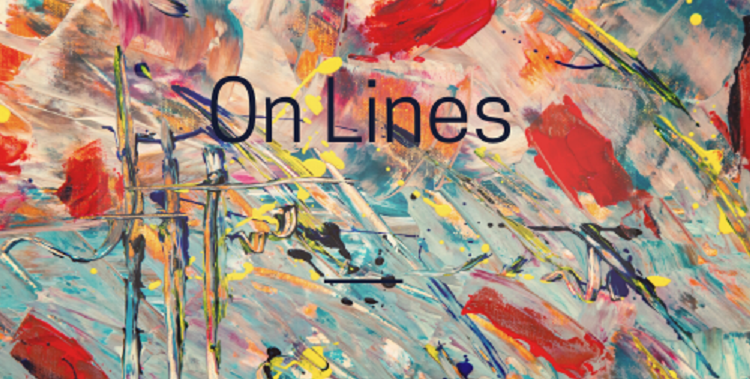Albus McInerney edits a literary magazine.
Marianne, I feel, may have gone a little too far – and I lay at least some of the blame at Kim’s door.
Marianne has always been a maverick. In the mid-1980s, she was behind the infamous series of “readings without words” at the University of Montpellier. A decade later, she went even further, with her ground-breaking (literally) haiku installation, embedding lines of poetry in the foundations of multi-storey carparks – written in concrete and buried in buildings, these wistful meditations on the seasons of experience will never actually be read.
Now, Marianne has composed a drama in iambic pentameters, that she wants us to make the centrepiece of the on line On Lines global poetry fest.
And her verse drama isn’t a paean to ethereal things, it’s a murder mystery – a Poirot-esque whodunnit. It is so bizarrely pushing at the envelope of the accepted form that when she first outlined her proposal I thought she was pulling my leg – except that Marianne is not at all given to leg-pulling.
Of course, the pandemic has led to a welcome a surge in ‘creativity of necessity’. In the poetry world, virtual readings, like premiership matches played to empty stadiums, have created a new way of enjoying traditional pursuits. The great technological and ecological re-set that we hope will accompany the return from lockdown to the new normal will be matched by similar recalibrations of existing practice in other walks of life – but I draw the line at Marianne’s pentameters: verse drama is, well, it’s perversely passé. Even if we all go green, post-pandemic, we are not going to go pre-electric.
I blame Kim because several weeks ago she shared with us the heartening news that a Hollywood film studio has paid her a substantial sum of money for an option on her long narrative poem about the journey made by her grandparents to the United States at the end of the nineteenth century. Kim’s unlikely commercial good fortune has rather upended the normally sober disposition of our poetry coterie. It may well be the case that some of us (I mean Marianne) have contracted a fit of the Hollywood vapours as a result of Kim’s soon-to-be-a-major-motion-picture glimpse of global recognition.
‘You’ve written the whole thing?’ Dimitri asked.
‘Almost.’
‘And there are parts for how many voices?’
‘Five,’ Marianne said. ‘Two female and three male.’
‘You have five actors in mind?’ I asked.
‘Albus,’ Patrice chimed in from Hongkong. ‘It’s as though the piece were specially made for us!’
‘But we’re not a theatre group!’ I said. ‘We are poets, not actors!’
‘There was a time,’ Dimitri said, ‘when this distinction was not generally recognized.’
‘By the ancient Greeks, for example,’ Marianne said.
I’ve noticed a thawing – I might even say a disconcerting thawing – in the hitherto somewhat frosty relationship between Marianne and Dimitri.
‘And the poets of the later Kamakura,’ Kim added, in my view not entirely helpfully, ‘often wrote with performance in mind – to be seen and heard rather than simply read. The poets themselves were regularly among the performers.’
‘Marianne,’ I asked, ‘did you really have the On Lines board in mind when you created the piece?’
‘Albus,’ Marianne said, with the gravitas that comes most naturally to her when she is expressing a view that she believes is securely based in academic rigour, ‘not only is this group well-suited to the task, it’s dynamic is exquisitely reflected in the substance of the work. Imagining us within the parameters of a verse drama is not only plausible, it’s natural. We are on different continents but we speak as though there were no physical distance between us. We are the drama.’
‘Bravo!’ Patrice said. I could feel the project taking flight as my enraptured colleagues pondered new artistic vistas.
‘And the subject?’ I asked Marianne.
‘A small troupe of travelling players consider fundamental philosophical questions as they move through the world, until a dispute arises that pits the group against their leader.’
‘And you have already allocated the parts?’
‘Oh,’ Marianne said, ‘I think they have allocated themselves.’
